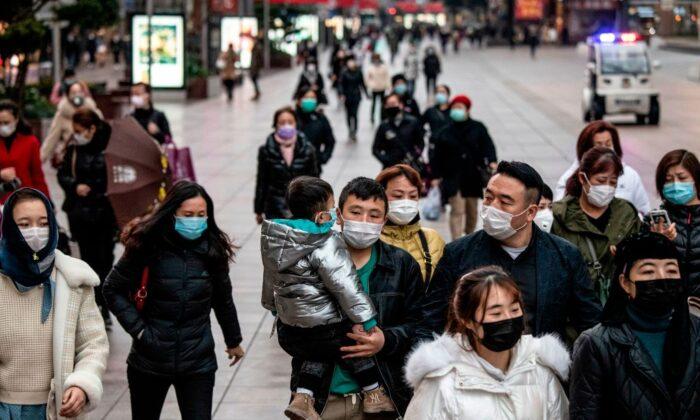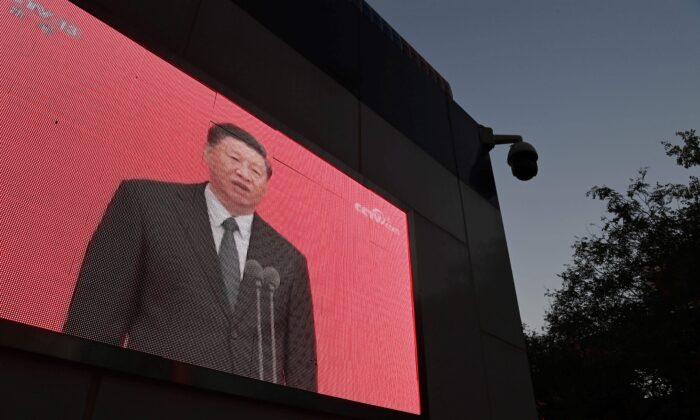The editorial, which includes signatories such as the relatively liberal Southern Metropolis Daily, argues that reform of the hukou system is necessary to appease the people and to catch up with the times.
The current household registration system has led to inequalities between urban residents and farmers, as well as among urban residents, the editorial says. Further, it argues that the hukou system restricts freedom of movement, openly violates the Chinese Constitution, and has become an incubator for corruption as urban residency statuses are bought and sold with Communist Party cadres acting as the middle men.
The hukou system was set up in 1958 by then director of the Public Security Bureau, Luo Ruiqing, who declared that it was to “stop the population in rural areas from blindly moving to cities.” This was supposed to accord with the ‘freedom of residence and movement’ guaranteed in the constitution. That clause was removed from the constitution in 1975, however, and the hukou system then lost its constitutional basis.
“The fact that some regulations can surpass the constitution truly reflects that there is no rule of law in China at all,” says Grace Lee, a former Chinese judge who now resides in the United States. “The hukou system, along with the former ‘detention and extradition’ system, are two wicked laws in modern China to restrict and discriminate against farmers,” she said.
Soon after the hukou system was rolled out, rural China was plunged into famine through Mao’s Great Leap campaign. Tens of millions starved to death as they were forced to work in communal fields and in some places, were restricted to rations of half a pound of grain per day. At the same time, farmers’ attempts to move elsewhere were hampered by the hukou system.
During the modern period of economic reform, the freedom, property, safety, and lives of many migrant workers—those who move from the countryside to the cities to work—have been exploited because they have no legal status. Writing in 2000, scholar Hein Mallee compared the rights of Chinese migrant workers to illegal aliens in other parts of the world.
The efforts of millions of migrants to push against an intransigent communist bureaucracy have eroded significant parts of the hukou system over the last several decades, but important elements remain.
The hukou system is still in operation because it makes it easier for the public security bureau to monitor the population in both rural and urban areas, according to Ms. Lee. Most importantly, local cadres can make vast profits by selling household registrations. “There’s a price for household registration in every city in China. For example, it will cost you 3 million yuan [about US$440,000] to buy a house in Beijing or Shanghai and become a Beijing or Shanghai resident; it will cost 2 million [about US$293,000] to move to Guangzhou; 1 million [about US$147,000] to Dalian,” Lee said.
The same goes for school enrolment, which can also be achieved if the price is right.
The editorial appeals to representatives and members of the Two Sessions, proposing a clear timeline for phasing out the hukou system.
More to Editorial Than Meets the Eye
A well-known Shanghai-based democratic activist who follows politic developments, told The Epoch Times that the level of inter-provincial cooperation displayed among 13 media in publishing a joint editorial before the Two Sessions indicates that they were given “some kind of hint” beforehand.
Because the newspapers involved are not directly the Communist Party’s official mouthpieces, even if they do cause a stir in society they will not embarrass the regime too much, he said. And on the other hand, their outspokenness gives the false impression that there is a certain degree of freedom of speech under Chinese Communist Party rule, he said—this false impression has filtered through to foreign media reporting.
It is a win-win situation for the 13 newspapers the commentator said, because if such a big social problem can indeed receive attention from the Two Sessions, the status of these outlets will be elevated. If not, they will still be seen as speaking up for justice. “They won’t offend the regime too much, and therefore are not running any risk at all,” he said.
The democracy activist declined to have his name published, saying that he has already been to prison for political dissent, and does not wish to go back.
Scholar Ling Cangzhou wrote on his blog that such joint editorials may spearhead trends in China, but at the same time carry risks. He said it indicates that journalists have already lost patience and confidence in political reform. He praised the Southern Metropolis Daily’s approach.
The publication sparked a round of lively online debate as netizens posted their grievances with the current hukou system. Some commented that despite having a decent job in the city, they were still separated from their families because of hukou status. Others expressed pessimism at the proposals, arguing that reform of the household registration system touches on too many areas. Some argued that one of the counter proposals in the editorial—a residence card—is itself a “deceptive trick.”
“It will be a long and winding road to reform the hukou system,” Lee said. “So many vested interests are at stake.”
Read the original Chinese article.






